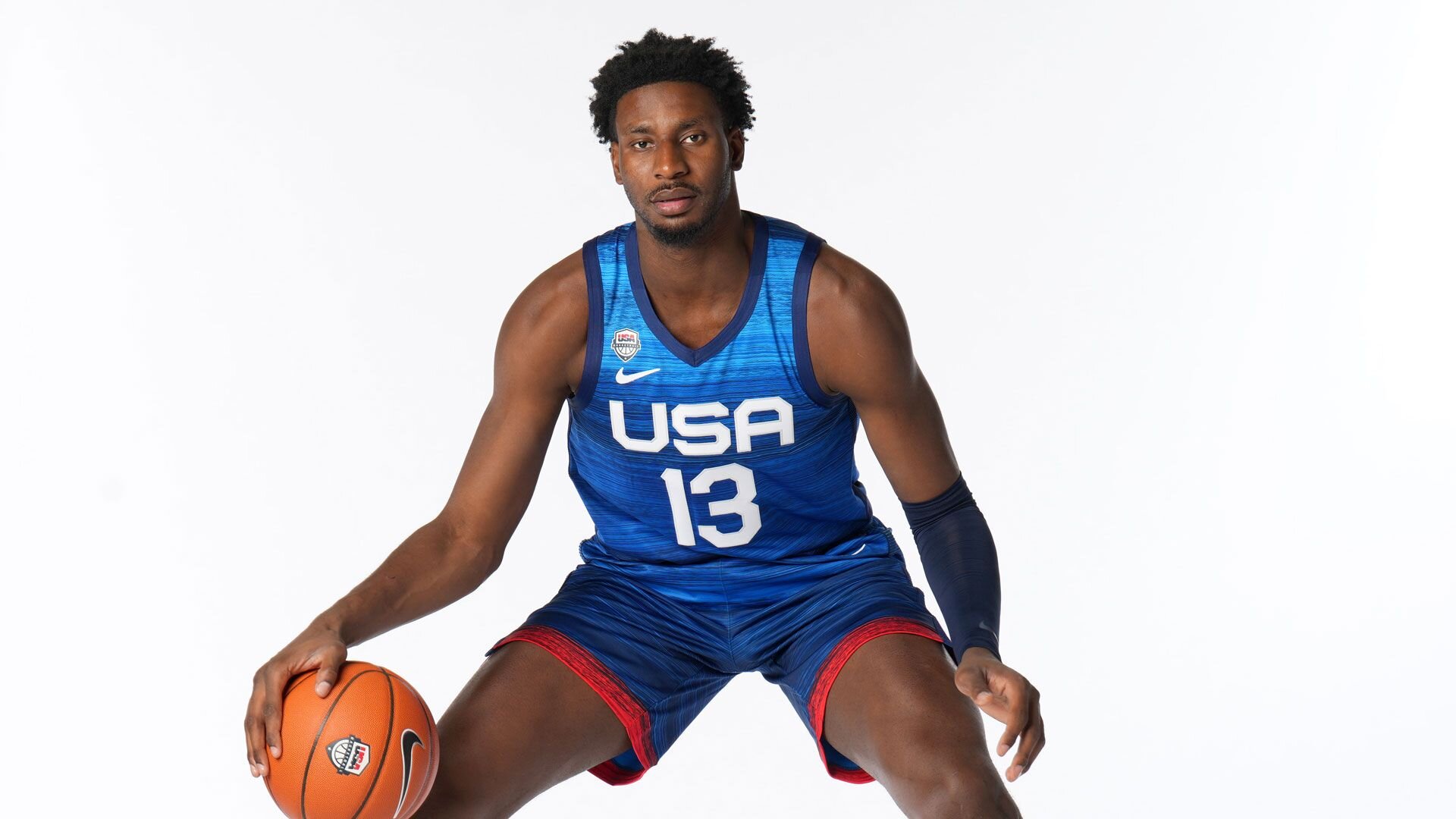The chemistry and camaraderie have formed remarkably fast.
But don’t believe for a second that players on Team USA’s roster aren’t giving one another fits every chance they get along their global trek to the FIBA World Cup.
Just take Jaren Jackson Jr. for example.
“I’m talking trash to everyone, every day,” the Grizzlies’ star big man insisted.
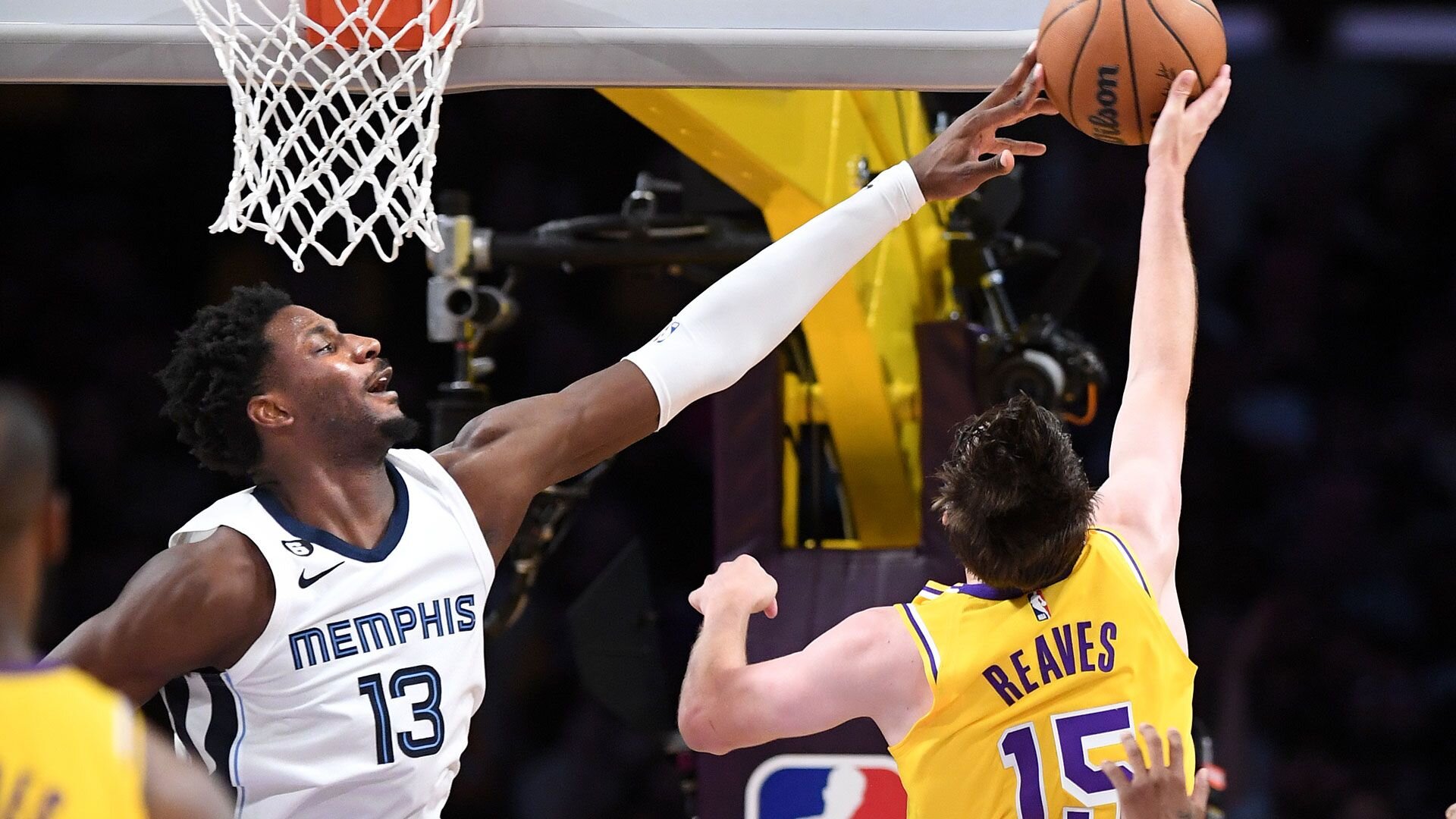
But there are moments when Jackson, the NBA’s reigning Defensive Player of the Year and Team USA’s starting center, grows even more defensive than anything he shows on the court.
Just ask USA teammate Austin Reaves, who finds just the right time to drop those not-so-subtle reminders how his Lakers beat Jackson’s Grizzlies in the opening round of last season’s playoffs.
“Oh yeah, I’ve definitely talked to him about that a couple of times already,” Reaves wisecracked. “We’re all sitting at a team dinner the other night, and I was minding my business, smiling, and just enjoying the conversation. Then someone said something crazy. And I had to bring up (the playoffs), just to drop a little jab in there to back them off.”
Even when joining forces for a collective national cause, there’s an intensely competitive streak that burns through this 12-man roster of some of the NBA’s best young players. But Jackson, Reaves and their teammates are setting in-season league rivalries aside – for now – as Team USA begins its quest for a gold medal with this weekend’s start of FIBA World Cup play.
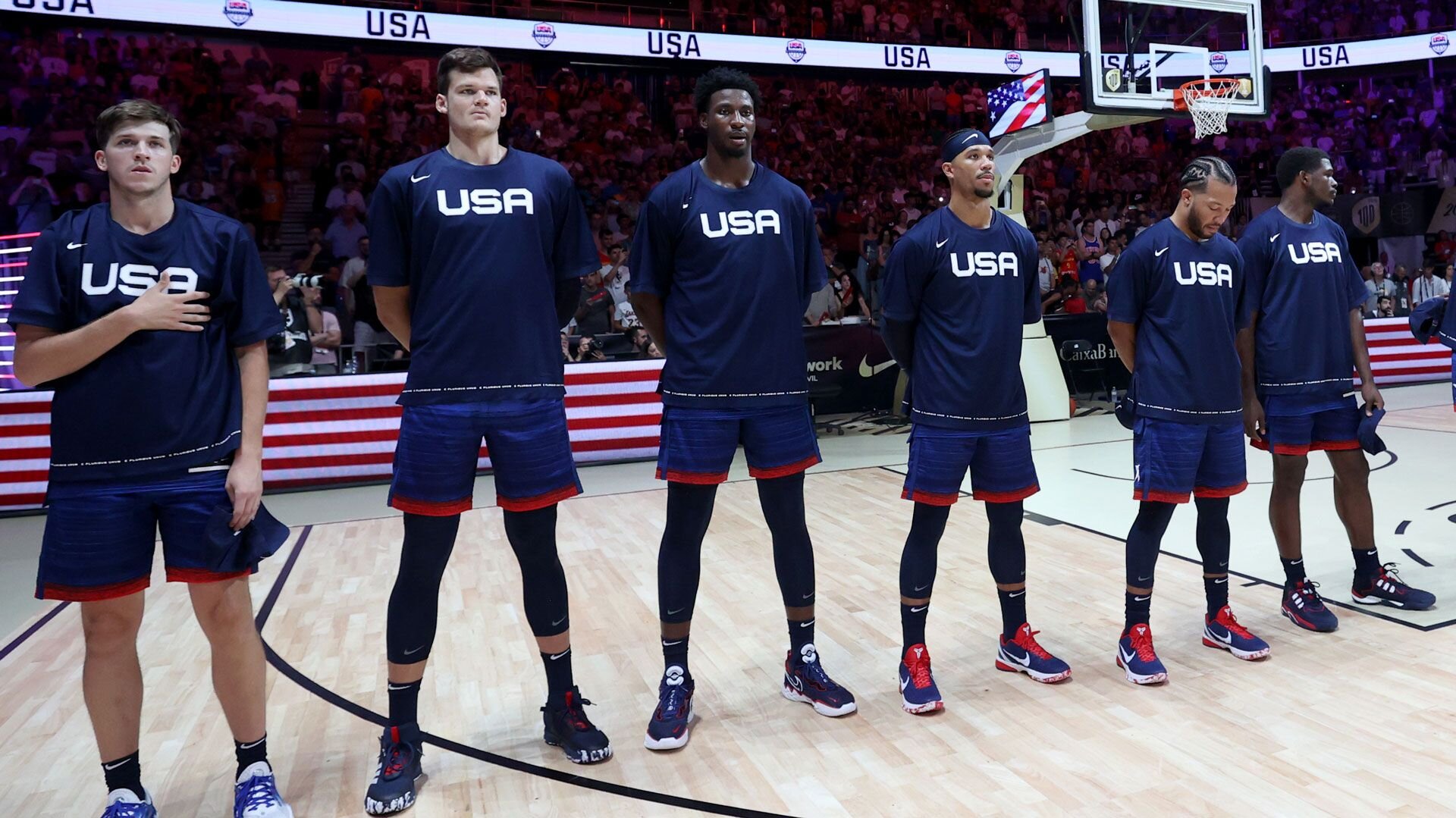
After quickly building bonds through training camp and a 5-0 run across three continents in exhibition games, Team USA opens play Saturday against New Zealand in the Philippines. The Americans then face fellow Group C opponents Greece on Monday and Jordan on Wednesday.
Spain enters the 32-team field as the No. 1 team in FIBA’s world rankings based on its gold medal finish in the 2019 World Cup and subsequent international play. But Team USA, which regrouped from a seventh-place finish in the 2019 World Cup to capture Olympic gold in 2021, is favored to emerge on top in the Sept. 10 FIBA World Cup finals.
If two close tune-ups against Spain and Germany are any indication, these next three weeks may be far from a cakewalk to the medal rounds for Team USA.
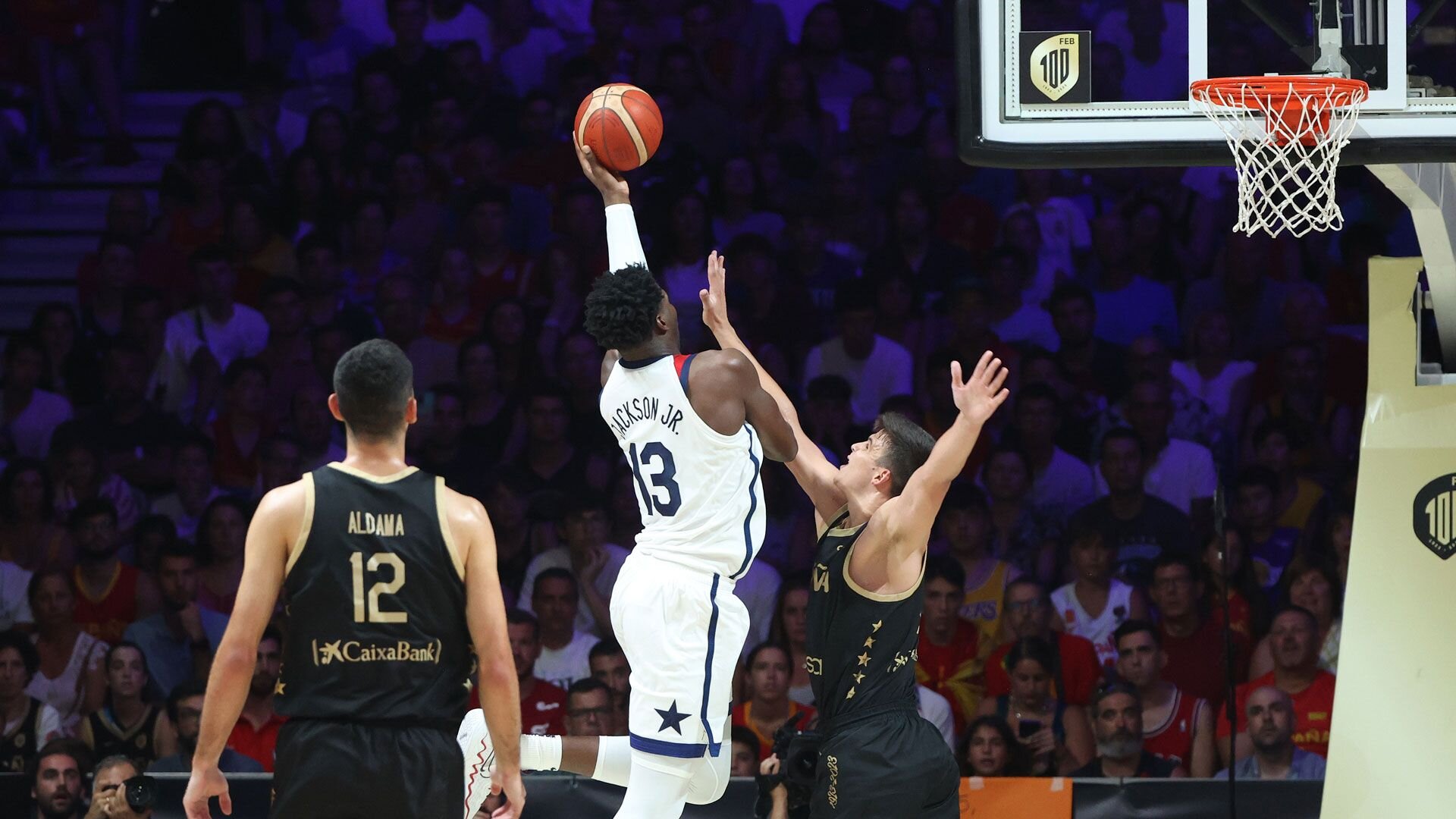
Two weeks ago, Spain played the Americans evenly through three-and-a-half quarters before faltering late. And in its final exhibition last week, Team USA had to rally from a 16-point deficit in the second half to escape Germany’s upset bid.
Growing together and bonding quickly are vital for a group of USA players experiencing their first taste of FIBA World Cup competition. None on this roster have played in an Olympics, either. Team USA aims to finish this FIBA tournament with one of the automatic bids to next summer’s Olympics in Paris.
“We have a young team but they’re hungry and on the rise, a really good group enjoying this process of working hard together every day,” USA coach Steve Kerr said as the team arrived in Manila. “We need to get prepared because we know how difficult this will be. There are a lot of great teams. We’re excited to be here and can feel the passion from fans everywhere we go.”
Jackson has been among the most consistent performers along the way. The NBA’s leader in blocks per game last season, Jackson’s defense has been dominant in exhibition play.
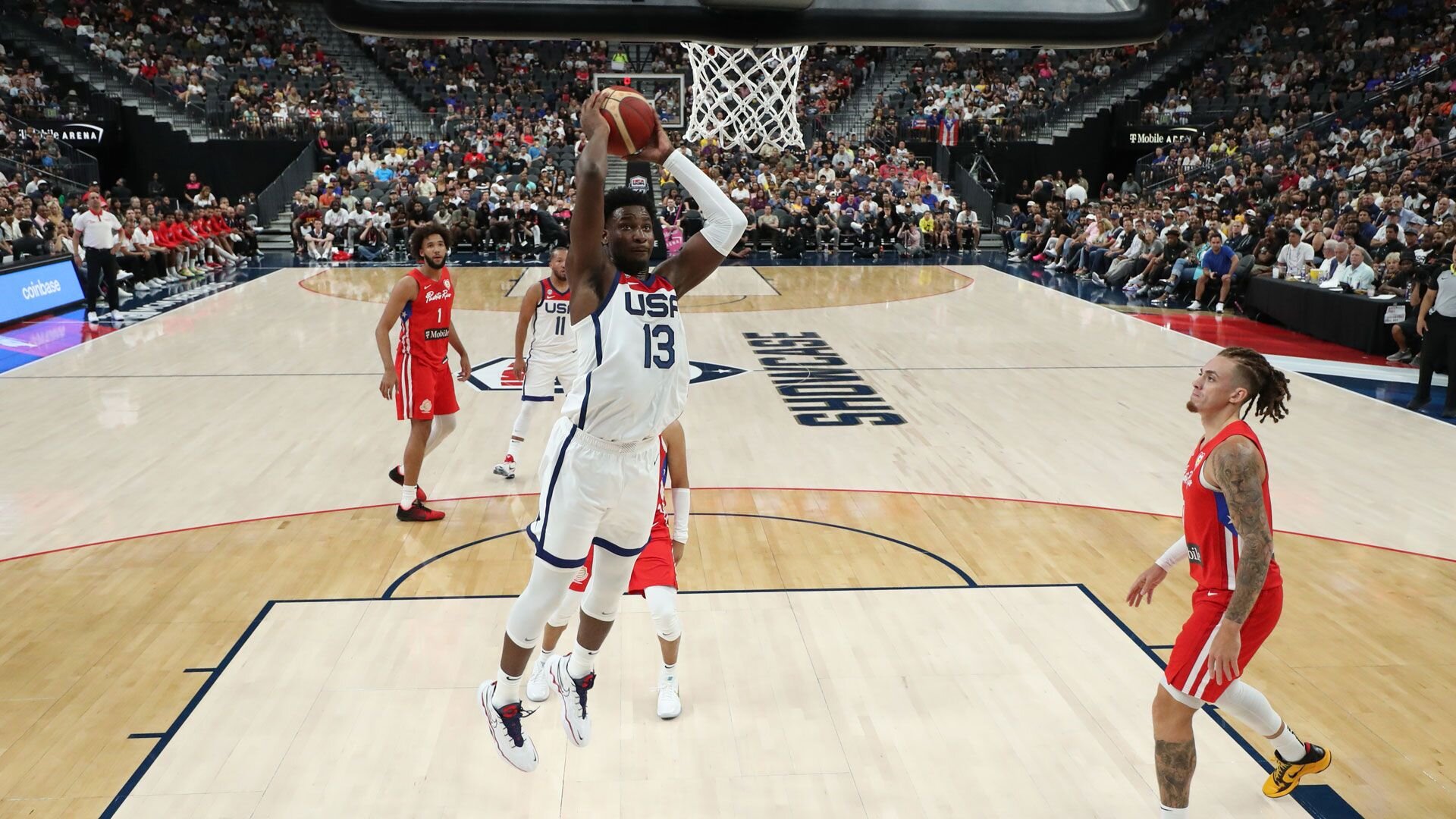
His versatility and unique impact on both ends of the court have kept Jackson in Kerr’s starting lineup for all five exhibition games. Jackson is expected to maintain that role alongside guards Jalen Brunson and Anthony Edwards, and forwards Mikal Bridges and Brandon Ingram.
Jackson has scored in double figures in three of five tune-up games and has averaged nearly six rebounds and a team-high three blocks per game. His most impressive stretch came in the closing minutes of Sunday’s rally to beat Germany. Jackson provided the interior defense and rim protection during USA’s 18-0 run in the fourth quarter to pull ahead.
Jackson finished with eight rebounds, seven points and six blocks in 27 minutes for his most complete effort during the exhibition slate. Playing primarily at center required some adjustments, with FIBA’s rules limiting participants to five fouls and less physical play.
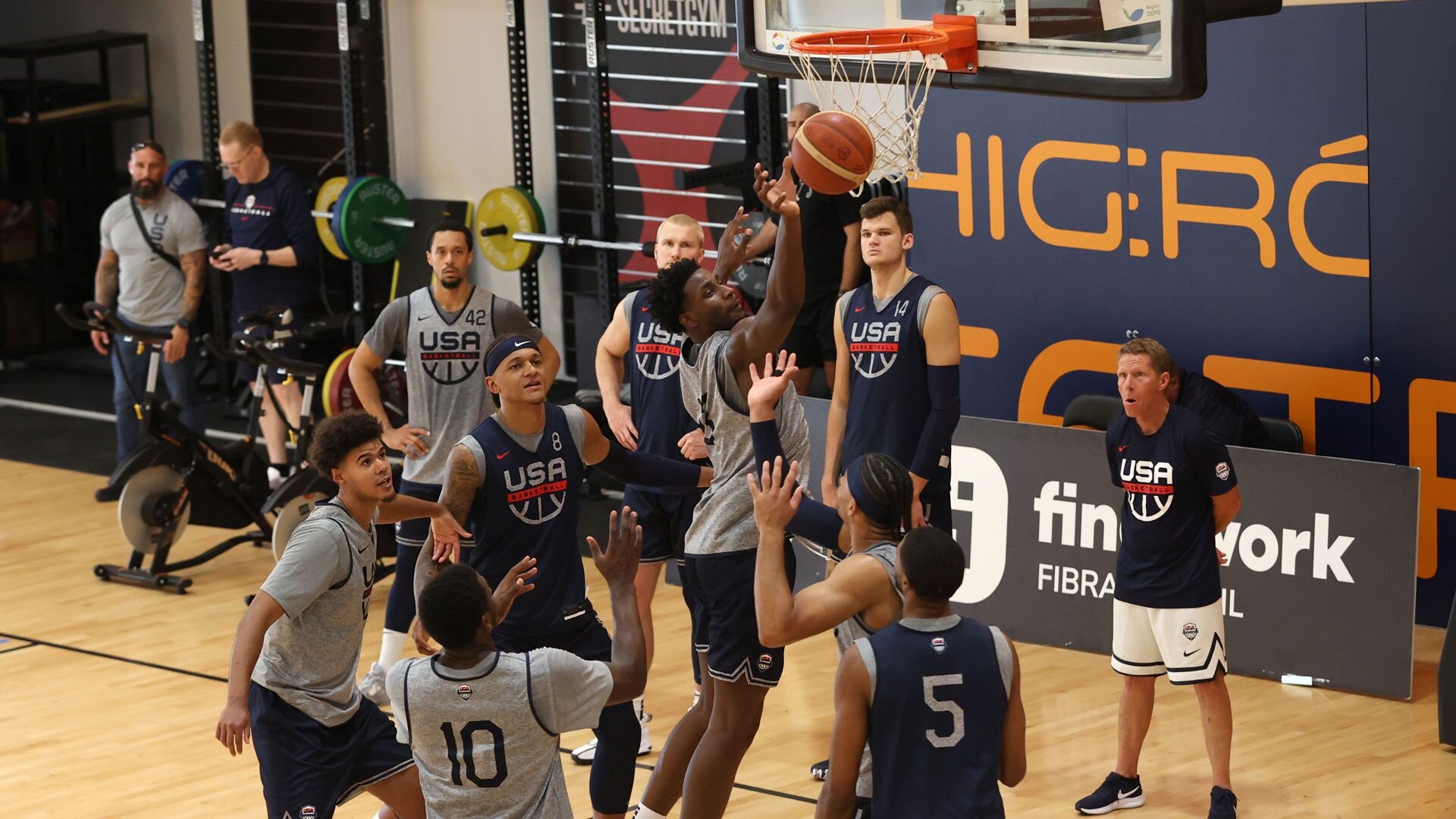
Having spent the bulk of his first five NBA seasons at power forward, Jackson has shared the frontcourt with centers such as Marc Gasol, Jonas Valanciunas and, currently, Steven Adams. With Team USA, he’s transitioned to being the man in the middle. It’s a role that could foreshadow what’s to come a bit farther into the prime of his NBA career in Memphis.
“Every day, it’s just about expanding more of my game to my new teammates here,” Jackson told Grind City Media of his Team USA adjustment. “It’s just doing what has to be done to win. Any part of your game, you’ve just got to use it where it fits. It really doesn’t matter what you’ve been doing on your respective teams. It’s what matters now and what needs to be done.”
Brunson echoes that sentiment and believes Jackson’s approach is symbolic of the team. The Americans haven’t been together long, but they’ve developed a tested formula for winning. They’ll rely on up-tempo offense, ball-movement, creating transition opportunities after forcing turnovers and aggressively defending the rim.
There’s also balanced scoring and depth, with Kerr’s rotation often stretching to 11 players.
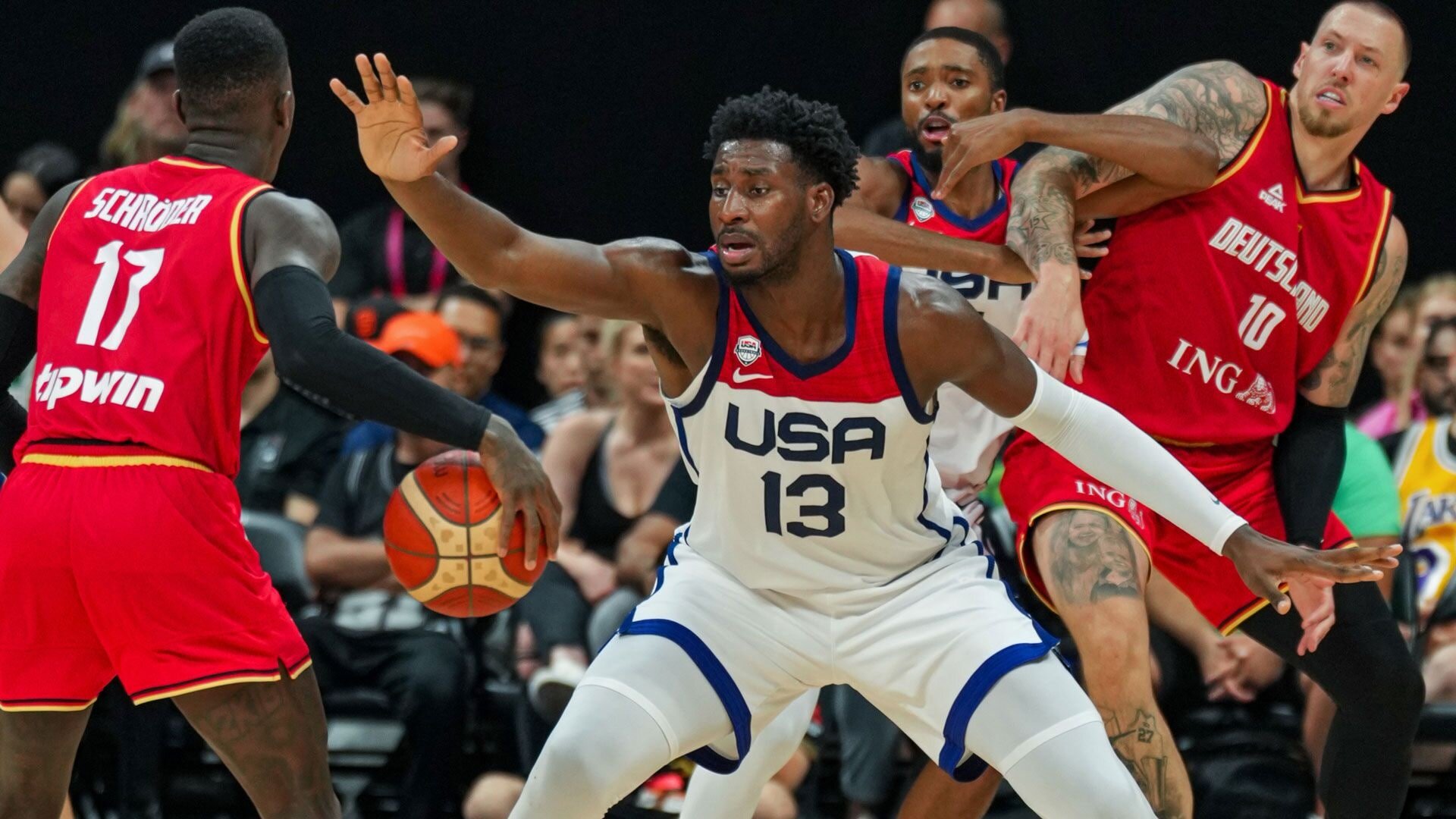
“Guys just want to put each other in position to be successful,” said Brunson, the Knicks’ catalyst and Team USA’s starting point guard. “We have a lot of guys who come from different situations and play different styles and roles on their teams. But here, egos are left at the door.”
Well, except for those moments when trash-talking breaks out.
Sometimes it’s on the bus to the arena. Other times it erupts at dinner, or when hanging out in the hotel. It doesn’t take much to get started, either.
There’s that playful Jackson-Reaves dynamic, of course. On the flip side, Jackson is also in the starting lineup with Edwards of the Timberwolves, who were knocked out of the playoffs two season ago by the Grizzlies.
“It happens everywhere, man,” Edwards said of the banter among rivals-turned-teammates. “You really don’t ever set it aside because you still have an edge when you’re around these guys. You have to talk a little trash. But at this point, we’ve come together to learn each other more. As we learn each other off the court, we’re that much better on the court.”
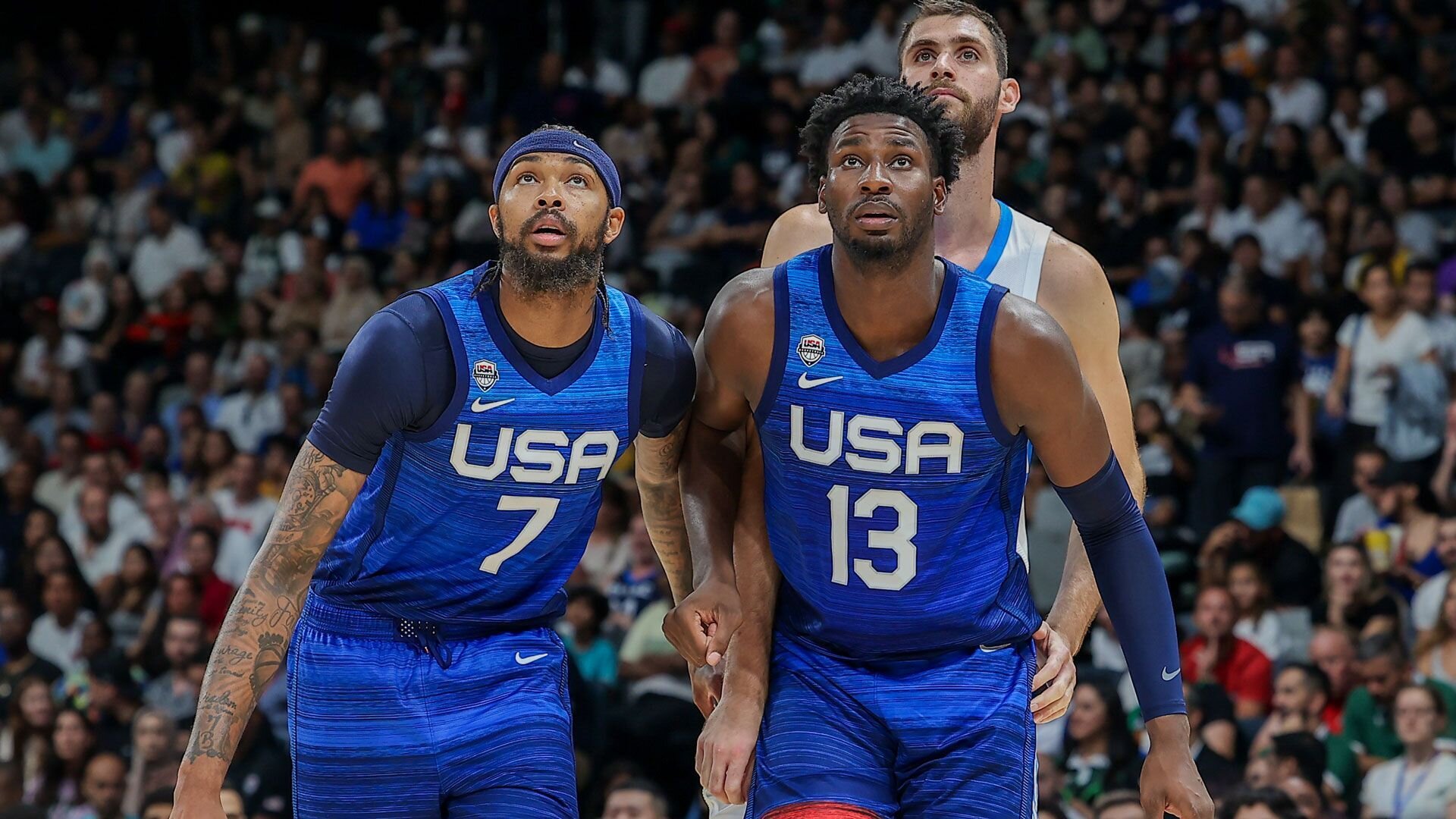
Talk only goes so far for Ingram, the prolific scorer from the Pelicans. Asked how intense the ribbing sometimes gets between these NBA players, Ingram slowly scanned the gym.
“They’ve all been talking since we got here,” Ingram smirked. “Every team (represented) here, I probably (scored) 30 on everybody. I don’t trash talk. All my (stuff) is action. Right now, you put all that NBA stuff away and learn each other fast. Once it hits October, then it’s different.”
The same fire that will spark them over the next seven months once the NBA season starts has already ignited them for a united stand through these next three weeks for FIBA goals.
“A lot of these guys, I started out with, grew up with playing the game at every level since we were young,” Jackson said. “We’ll put (team rivalries) aside, for sure, for now. But we’re always going to have fun. We’re just ready to get this thing going.”
Team USA has already proved to be a team of fast learners.
And quicker wits.
